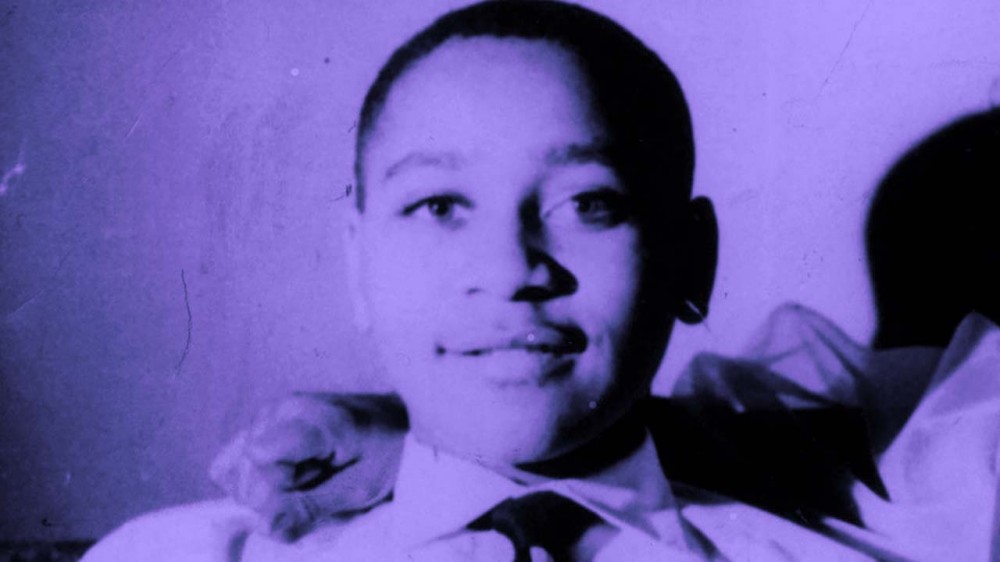
Emmett Till, a teenager who was murdered to uphold white supremacy, sparked the Civil Rights movement. An anti-lynching bill in his name is awaiting signature by President Joe Biden and an opera interpretation of the story is heading to a stage in NYC.

293 Views
Comments Off on Emmett Till Anti-Lynching Act Awaits Biden’s Signature As Fictionalized Story Heads To Off-Broadway Theatre
Who is Emmett Till?
Emmett Louis Till was a 14-year-old African American who was lynched in Mississippi in August 1955. This came after he was accused of sexually harassing a white woman in her family’s grocery store. The cold-blooded nature and brutality of the murder and the subsequent acquittal of his white killers drummed up attention to the history of violent persecution of African Americans in the United States. It also made Till a posthumous icon of the civil rights movement, often cited as the reason the movement began.
Why Emmett Till Was Lynched
Till was born and raised in Chicago, Illinois. During his summer vacation in August 1955, he was visiting relatives near Money, Mississippi, in the Mississippi Delta region. On August 24, he and cousin Curtis Jones went to Bryant’s Grocery and Meat Market to buy candy. The store was owned by a white couple: 24-year-old Roy Bryant and his 21-year-old wife Carolyn, who was alone at the front of the store that day, with her sister-in-law at the back of the store watching children. Emmett Till was left alone by Jones when Jones went to go play checkers across the street with other boys.
Facts of what exactly happened in the store are still disputed to this day, but here is what (supposedly) happened: Bryant testified during the murder trial that Till grabbed her hand while she was stocking candy and said, “How about a date, baby?” Bryant said she freed herself from his hold but Till allegedly followed her to the cash register, grabbed her waist, and said “What’s the matter baby, can’t you take it?” She said she freed herself again, but Till continued, “You needn’t be afraid of me, baby.” She added that he used an ‘unprintable’ word and said, “I’ve been with white women before.” Bryant also alleged that one of Till’s companions came into the store, grabbed him by the arm, and ordered him to leave. Bryant then went outside to retrieve a gun from under the seat of her car and it was at this moment that Till whistled at her.
It must be noted that Emmett Till was diagnosed with polio when he was five. Though he recovered, it left him with a stutter. Christopher Metress, in his book, The Lynching of Emmett Till: A Documentary Narrative includes an account from a newspaper stating that Till would sometimes whistle to help his stuttering.
Upon finding out what happened when he returned from a trip, Carolyn’s husband, Roy Bryant, and his half-brother, J.W. Milam, kidnapped Till from the house of his great-uncle, Moses Wright, on August 28, 1955, between 2 and 3:30 a.m.
Emmett Till was then lynched. He was made to carry a 75-pound cotton gin fan to the bank of the Tallahatchie River and ordered to take off his clothes. Roy and Milam then nearly beat Till to death, gouged out his eye, shot him in the head, and then threw his body – tied to the cotton gin fan with barbed wire – into the river. Three days later, his corpse was recovered but mutilated beyond recognition. His great uncle, Moses Wright, could only identify it by an initialed ring.
The Trial Of Till’s Murderers
After Emmett’s body was buried, Milam and Bryant went on trial in a segregated courthouse in Sumner, Mississippi. Few witnesses besides Mose Wright could definitively identify the defendants as Emmett’s killers. On September 23, the all-white jury deliberated for less than an hour before issuing a verdict of “not guilty”. They said they believe the state failed to prove the identity of the body. This decision and the state’s decision not to indict Milam and Bryant on the separate kidnapping charge sparked nationwide outrage. Milam and Bryant sold their story to Look magazine in a 1956 interview, where they confessed to killing Emmett Till.
In 2017, author Timothy Tyson released details of a 2008 interview with Carolyn Bryant. He claimed that during the interview she revealed that she had fabricated parts of her testimony at the trial. Bryant retracted her testimony that Till had grabbed her around her waist and uttered obscenities. According to her, “that part’s not true”. During the interview, the 72-year-old Bryant said she could not remember the rest of the events that occurred between her and Till in the grocery store, but ultimately stated: “nothing that boy did could ever justify what happened to him.”
Carol Bryant is still alive to this day and is related to former Republican Mississippi Governor Phil Bryant, whose mother, Estelle R. Bryant, is the sister of Roy Bryant.
Emmett Till And Legislation
On Monday, February 28, Congress overwhelmingly passed anti-lynching legislation, 422-3, that would officially make lynching a hate crime. Except for 3 Republicans.
The Emmett Till Antilynching Act [HR 55], named after Emmett Till, was introduced by Rep. Bobby L. Rush. The bill aims to amend section 249 of title 18 of the United States Code to specify lynching as a hate crime act and anyone who conspires to commit such an act resulting in death or serious bodily injury shall be punished by up to 30 years in jail.
Bobby L. Rush called out the three dissenting senators in a tweet.
Who were the 3 votes against the #AntilynchingAct tonight?👇🏾
Andrew Clyde, GA: Called the 1/6 insurrection a “normal tourist visit”
Thomas Massie, KY: Wrote a bill to allow guns in school zones
Chip Roy, TX: Called lynching an “example of justice”
All Republicans. Surprised?
Who were the 3 votes against the #AntilynchingAct tonight?👇🏾
Andrew Clyde, GA: Called the 1/6 insurrection a “normal tourist visit”
Thomas Massie, KY: Wrote a bill to allow guns in school zones
Chip Roy, TX: Called lynching an “example of justice”
All Republicans. Surprised?
— Bobby L. Rush (@RepBobbyRush) March 1, 2022
Senator Roy issued a statement on his website on March 1st defending his decision, “Lynching is an unspeakably heinous crime. But this bill doesn’t have anything to do with lynching, other than its name.“
Senator Thomas Massie, wrote in a Twitter thread, that enforcing punishment for ‘hate’ has the tendency to endanger other liberties such as freedom of speech, and argued that lynching is illegal in all states already.
The Senate unanimously passed Bobby L. Rush’s Emmett Till Anti-Lynching Act on March 7th, even though there have been 200 attempts to outlaw this act at the federal level since 1918. In 2020, the House voted to pass an earlier version of the Till Antilynching Act – four House Republicans voted against it. It then went to the Senate where it was held up by Sen. Rand Paul (R-Ky.). Paul argued that making lynching a hate crime might lead to people being sentenced too harshly. “This bill would cheapen the meaning of lynching by defining it so broadly as to include a minor bruise or abrasion,” he said in a speech on the Senate floor. “Our national history of racial terrorism demands more seriousness of us than that.”
It is now heading to President Biden, where it awaits to be signed into law.
Emmett Till and The Opera
Emmett Till had been the subject of many movies, films, documentaries, even being referenced in songs by Kayne and Nas. But he is now the subject of a new opera that will be premiering this spring.
According to Playbill, the producers of “Emmett Till, A New American Oprea,” are having the show’s world premiere at the Gerald W. Lynch Theatre at New York’s John Jay College on March 23 and hosting an encore performance on March 24.
The show is about Roanne Taylor, a white woman who “is against Jim Crow laws, segregation and the racial inequality that she sees around her but remains silent.” Although a fictional character, Taylor will interact with those associated with the murder, such as his mother, Mamie Till as well as accuser Carolyn Bryant.
Playbill describes the opera as a story “approached through the lens of Roanne Taylor, a young white woman who teaches high school science in Drew, Mississippi. Roanne is against Jim Crow laws, segregation, and the racial inequality that she sees around her but remains silent. She is the opera’s only fictional character and represents what Martin Luther King Jr. called the ultimate tragedy, “the silence of the good people.”
Many are protesting the play because of its principal creator, playwright Clare Cross, who wrote the 2013 play, “Emmett, Down in My Heart.”
Marcia Pendelton, founder and CEO of Walk Tall Girl Production, a full-service theater marketing and group sales agency, told Atlanta Black Star she believes that stories told about Black people in circles where the audience is predominantly white “must be authentic” and “historically accurate.”
Adding a character that was not there to such a powerful illustration of Black pain to lift the complexity of whiteness, shifts the attention from Mama Till’s pain and muddies the historical complexity of the Emmett Till story.
